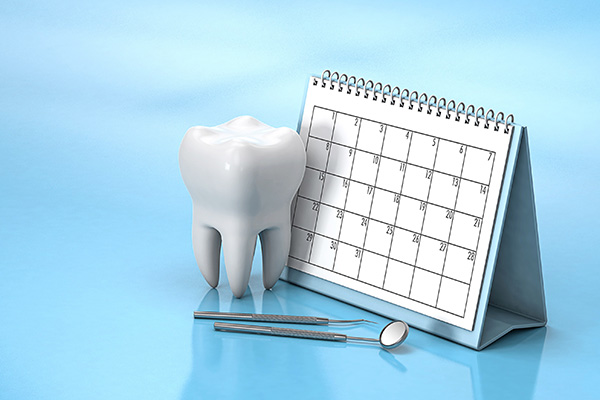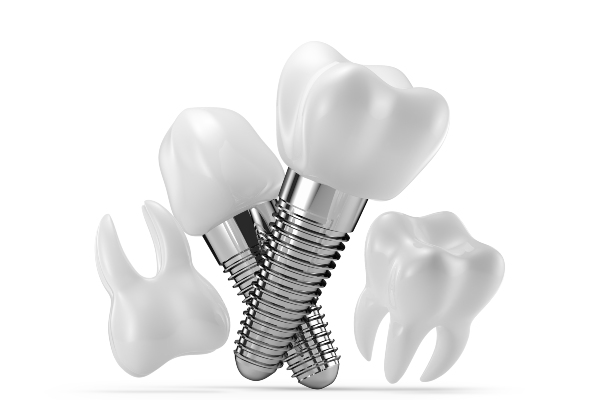Emergency Dentistry Services for a Fractured Tooth During the COVID-19 Pandemic

A fractured tooth requires emergency dentistry if the damage to the tooth affects its inner chambers. A fractured tooth can be caused by a variety of things like trauma from sports/accidents, biting on hard foods and bruxism.
The COVID-19 pandemic has led to many dentists limiting their services to only emergency dentistry to reduce the risk the virus poses to dentists and their patients. Many oral health professionals are now using video conferencing tools to diagnose patients and to help them determine if they need emergency dental care.
Emergency dentistry services for fractured teeth during COVID-19
There are a variety of ways to go about treating fractured teeth. The procedure the dentist recommends depends on the tooth's location and the severity of the fracture. Common treatments used to fix fractured teeth include:
Composite bonding
This is typically the cheapest way to fix a fractured tooth and it is usually used for mild to moderate fractures. It involves covering the tooth with a composite resin that is color-matched with the rest of the patient's teeth. The composite is shaped as desired before being hardened with a curing light. The process of composite bonding does not require any permanent alterations being made to the tooth. It only requires using an etching solution to roughen up the tooth. The patient is still free to cover up the fracture with some other restoration, like crowns, in the future.
Dental crowns
Crowns can be used for moderate to severe fractures. The tooth is prepared for the crown by removing enamel from all its sides. Reshaping the tooth creates a better fit for the crown. The crown is customized for the patient using an impression or digital images of their teeth. A crown prevents the tooth from breaking apart and protects it from bite forces generated when chewing.
Root canal
Root canals can be used to save severely fractured teeth with compromised pulp chambers. The procedure involves drilling a hole into the tooth and using files to remove the blood vessels and nerve. This helps to prevent the tooth from becoming infected. The dentist finishes the procedure by sealing the tooth and covering it up with a crown. A tooth that has been restored with a root canal can last the rest of the patient's life.
Extraction
This option is typically explored when the tooth is severely damaged as a result of the fracture. The dentist might opt for a surgical or simple extraction depending on how much of the tooth is left. An extraction counts as oral surgery and it can take up to two weeks to recover from it. The dentist will usually replace the extracted tooth with an implant, which is the next best thing to real teeth. Only a small percentage of fractured teeth require extraction.
Get emergency dentistry care for your fractured tooth
We are currently providing emergency dentistry despite the COVID-19 pandemic. Call or visit our Bryan clinic to get the process started.
Request an appointment here: http://www.riversdentistry.com or call Rivers Family Dentistry at (979) 710-2216 for an appointment in our Bryan office.
Check out what others are saying about our services on Yelp: Read our Yelp reviews.
Related Posts
Seeing your family dentist for regular dental exams can maintain your oral health for many years. Bringing your family with you can extend this benefit to them. Understanding why you must set dental checkups will enable you to maintain a healthy smile for years. Here are the reasons to see your family dentist for regular…
If you have lost one or more of your teeth, talking to an implant dentist might provide the tooth replacement solution you are looking for. Dental implants are one of the most popular ways to replace missing teeth. Whether you are missing one tooth or all of your teeth, chances are there is an implant…
A family dentist makes getting the dental care you and your loved ones need a lot more convenient. Good oral health is not only about keeping your smile looking pearly white; it is also about protecting yourself against bacteria and the infections they bring.A family dentist is equipped to handle all of your loved ones'…
Dental implants are durable, natural-looking replacements for missing teeth. An implant dentist may recommend a single implant or multiple implants spaced throughout the mouth depending on how many teeth are missing and where. This blog will discuss when single or multiple implants are recommended, as well as the other tooth replacement options that can bolster…


